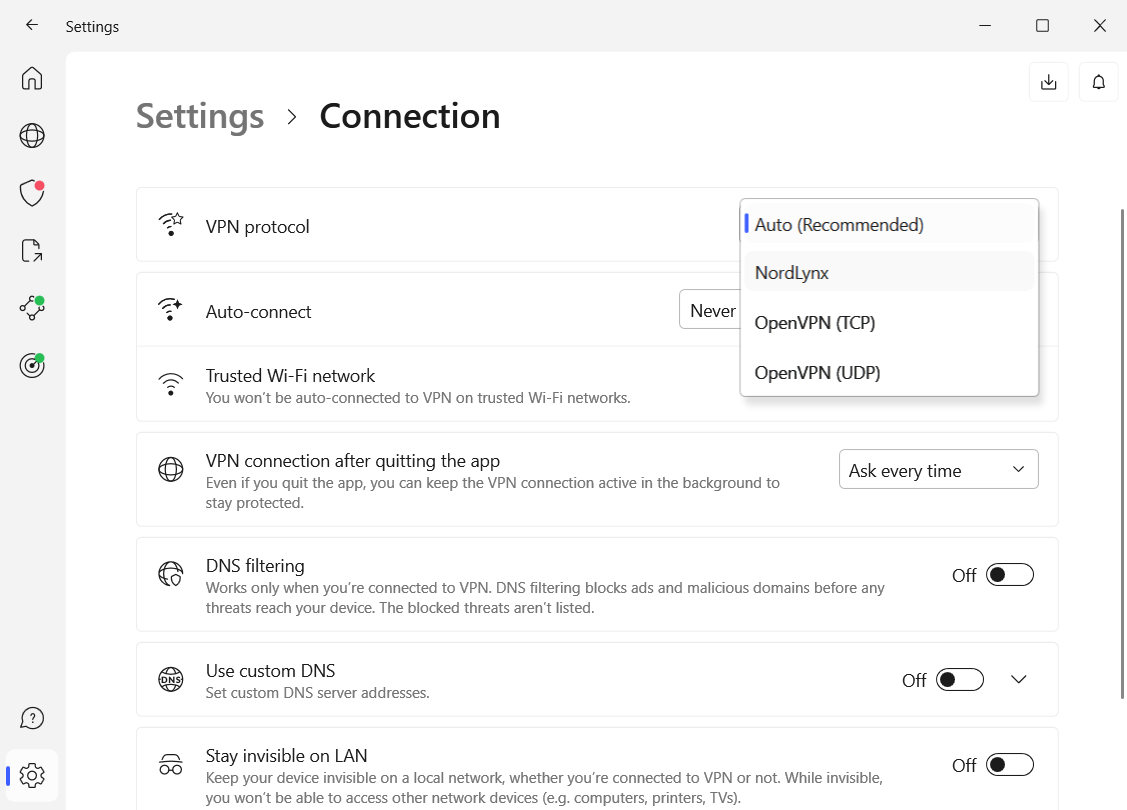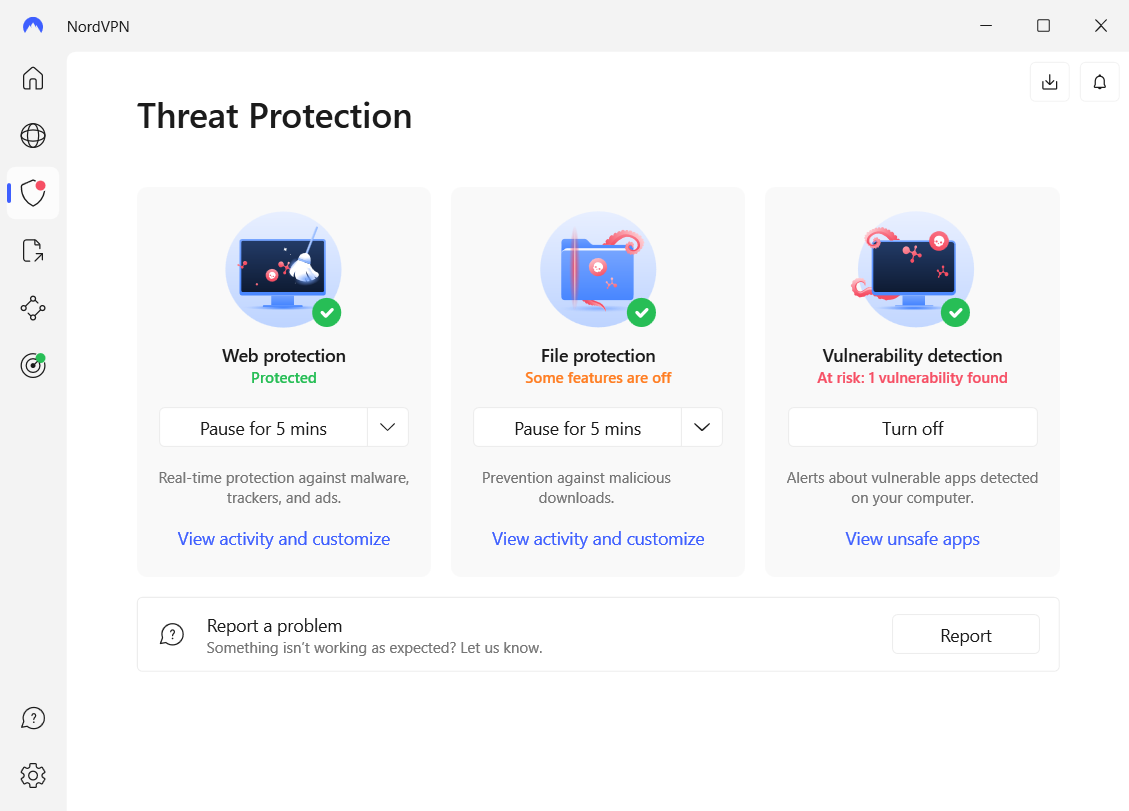9 things you realize when you first start using a VPN
Modern VPNs are designed for everyone, from first-time novices to IT professionals. Not only can just about anyone benefit from using a VPN, but they also come with a few not so obvious upsides—and one or two downsides.
You may be about to use a VPN for the first time or just have questions about why certain things occur while connected to one. If so, welcome. I’m here to walk you through the most common things you’re likely to encounter while using a VPN. Let’s get started.
If you’re on the hunt for a new VPN, check out my list of the best VPNs to make sure you maximize the upsides.
Getting connected to a VPN is very easyA VPN might come across as intimidating to the uninitiated—after all, Virtual Private Network sounds like something straight out of the IT department. But VPNs are actually very easy to use. Millions of non-tech people use them every day and if they can figure it out, so can you.
Our favorite VPN Overall ExpressVPN Read our review
Price When Reviewed:
From $6.67 a month for one year + 3 free months. Usually $12.95 a month..
Best Prices Today:
$6.67 at ExpressVPN (Monthly)
Read our review
Price When Reviewed:
From $6.67 a month for one year + 3 free months. Usually $12.95 a month..
Best Prices Today:
$6.67 at ExpressVPN (Monthly)
Most VPN providers understand the trepidation that new users have and they’ve designed the apps to be as intuitive as possible. Top services such as ExpressVPN and AVG Secure VPN allow you to quickly connect with just one click. If you don’t want to worry about scrolling through a long list of servers either, almost every VPN has a “Quick connect” option that will choose for you.
Simply start up the VPN, click “Quick connect” and you’ll instantly be enjoying a secure, private connection. It’s as easy as that.
Options, options galore
VPNs such as NordVPN come with a plethora of options to tweak.
Sam Singleton
While getting up and running with a VPN is the main goal, there is so much more you can explore in the app as well. Almost every VPN comes with at least a few configurable settings. Some even come with a head-spinning number of options that you can play around tweaking with for hours.
Power users or tinkerers can optimize connections with everything from kill switches to protocols, split tunneling to multi hop connections, and more. If that sounds like a bunch of technospeak to you, don’t worry. We have plenty of VPN explainer articles, guides, and how-tos here at PCWorld for you to learn from. Start with our guide to the 5 VPN features you need to start using today. You can also find a lot of additional information on a VPN provider’s webpage.
Streaming services have different content based on your locationConnecting to a VPN server in a different country or region may allow you to watch different content. Due to various copyright and distribution restrictions, some streaming services only allow certain content to be shown in certain areas.
Using a VPN, such as any of my top picks for best VPN for streaming, is a great way to access region-locked content. This works well if you’re traveling as well. If you’re abroad and want to catch up on a show from back home, just set your server location to your home country then connect, and voilà—sit back, grab some snacks, and enjoy your unlocked content.
Prices while online shopping may changeWe all love the convenience of online shopping. Not only does it allow us to find just about everything we need, but we can even compare prices across retailers with ease. What you may not know is that retailers often set different prices across different countries, or even times of day, for the same items or services—sometimes drastically so.
You may notice that when connected to a VPN the prices for items will be suspiciously different than when disconnected. Savvy shoppers can absolutely use this to their advantage to save money while shopping online. Plus, with a VPN, you get the added benefit of a more secure transaction.
Speeds may decrease (or increase!)Something that you’ll inevitably notice when you start using a VPN is that your internet speeds will decrease. Sorry, but it’s just the nature of the game when it comes to VPNs. By encrypting all of your traffic and then rerouting it through a remote server, your ping is bound to increase.
Depending on the VPN you use and the specific server, you may also run into server load issues that can potentially slow down your connection as well. For those who are looking to stream or game with a VPN, it’s imperative that you choose a fast VPN in order to minimize performance issues.
On the flip side, and if you’re lucky, you may notice that your internet speeds actually increase while connected to a VPN. If this is you, the likely culprit is your ISP, who may have been throttling your home internet connection for some reason—congratulations, you’ve finally found a way to stick it to your ISP.
Further reading: How to test your VPN speed
Websites may still know who you areVPNs are really good at anonymizing and obscuring your traffic from your ISP, but they aren’t so great at hiding your data from websites. This is because websites, particularly those that you log into, are going to track your activity with cookies.
Cookies are storage files that remember how you interact with a website. This is how the site knows what you add to your cart, what articles you click on, and other site preferences. It doesn’t matter what IP address or server you log in from with a VPN, the website will still be able to recognize the cookies on your device and track you from there. This is why it’s so important to regularly clear the cookies on your devices.
You’ll run into more CAPTCHAs
ninefotostudio / Shutterstock.com
One of the most annoying things on the internet nowadays are those “prove you’re not a robot” tests. Well, guess what? Using a VPN is going to result in you taking even more of those. They’re called CAPTCHAs, and are designed to protect services and websites from being overrun with bots.
Because a VPN server often hosts many users at the same time, traffic from these servers is frequently flagged as being potential bots. And while, sure, these CAPTCHA tests are annoying, they are also mercifully easy to pass. It’s a small price to pay for the added privacy and security you’re getting with a VPN connection.
You’ll probably run into less ads A great ad-blocking Vpn NordVPN Read our review
Price When Reviewed:
Basic plan from $3.59 a month for two years + 3 free months. Usually $12.99.
Best Prices Today:
$3.59 at NordVPN (Monthly)
Read our review
Price When Reviewed:
Basic plan from $3.59 a month for two years + 3 free months. Usually $12.99.
Best Prices Today:
$3.59 at NordVPN (Monthly)
Now this is going to depend a lot on your VPN. If it comes with a built-in ad- and tracker-blocking feature then you should notice less ads while browsing. Services like NordVPN and Surfshark are just some of the VPNs offering powerful ad-blocking tools that help keep those pesky pop-ups at bay.
It might not be possible to completely block out ads while browsing, but a VPN with these features turned on can dramatically reduce their occurrence. When you connect to a VPN server, you are using a new IP address, meaning many websites won’t recognize you. So essentially just by connecting, you are already mitigating the instances of targeted ads.
As I mentioned earlier though, a website can still serve up targeted ads if you don’t take extra precautions such as wiping cookies regularly or using private browsing.
Sometimes, websites just don’t like VPNsWhile using a VPN is a great way to keep your browsing private and get around certain internet blocks, you’ll just have to accept that some websites refuse to work for VPN users.
Not every site will allow traffic coming from a VPN, and some actively block known VPN server IP addresses. This is an unfortunate truth that you’ll have to accept when using a VPN.
If you still want to access the site while using a VPN you could try out connecting to different servers. If that doesn’t work then you could use the split-tunneling feature to omit that specific site or app while keeping everything else protected. Finally, if all else fails you might just need to accept that accessing that site requires turning off your VPN for a bit.
